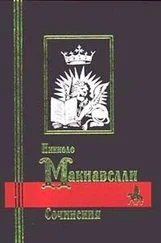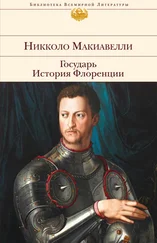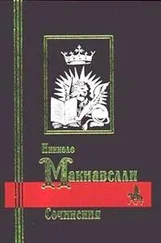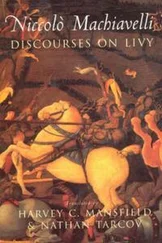And as with these examples I have reached Italy, which has been ruled for many years by mercenaries, I wish to discuss them more seriously, in order that, having seen their rise and progress, one may be better prepared to counteract them. You must understand that the empire has recently come to be repudiated in Italy, that the Pope has acquired more temporal power, and that Italy has been divided up into more states, for the reason that many of the great cities took up arms against their nobles, who, formerly favoured by the emperor, were oppressing them, whilst the Church was favouring them so as to gain authority in temporal power: in many others their citizens became princes. From this it came to pass that Italy fell partly into the hands of the Church and of republics, and, the Church consisting of priests and the republic of citizens unaccustomed to arms, both commenced to enlist foreigners.
The first who gave renown to this soldiery was Alberigo da Conio, [28] Alberigo da Conio. Alberico da Barbiano, Count of Cunio in Romagna. He was the leader of the famous "Company of St George," composed entirely of Italian soldiers. He died in 1409.
the Romagnian. From the school of this man sprang, among others, Braccio and Sforza, who in their time were the arbiters of Italy. After these came all the other captains who till now have directed the arms of Italy; and the end of all their valour has been, that she has been overrun by Charles, robbed by Louis, ravaged by Ferdinand, and insulted by the Switzers. The principle that has guided them has been, first, to lower the credit of infantry so that they might increase their own. They did this because, subsisting on their pay and without territory, they were unable to support many soldiers, and a few infantry did not give them any authority; so they were led to employ cavalry, with a moderate force of which they were maintained and honoured; and affairs were brought to such a pass that, in an army of twenty thousand soldiers, there were not to be found two thousand foot soldiers. They had, besides this, used every art to lessen fatigue and danger to themselves and their soldiers, not killing in the fray, but taking prisoners and liberating without ransom. They did not attack towns at night, nor did the garrisons of the towns attack encampments at night; they did not surround the camp either with stockade or ditch, nor did they campaign in the winter. All these things were permitted by their military rules, and devised by them to avoid, as I have said, both fatigue and dangers; thus they have brought Italy to slavery and contempt.
Chapter XIII
Concerning Auxiliaries, Mixed Soldiery, and One's Own
Auxiliaries, which are the other useless arm, are employed when a prince is called in with his forces to aid and defend, as was done by Pope Julius in the most recent times; for he, having, in the enterprise against Ferrara, had poor proof of his mercenaries, turned to auxiliaries, and stipulated with Ferdinand, King of Spain, [29] Ferdinand V (F. II of Aragon and Sicily, F. III of Naples), surnamed "The Catholic," born 1542, died 1516.
for his assistance with men and arms. These arms may be useful and good in themselves, but for him who calls them in they are always disadvantageous; for losing, one is undone, and winning, one is their captive.
And although ancient histories may be full of examples, I do not wish to leave this recent one of Pope Julius the Second, the peril of which cannot fail to be perceived; for he, wishing to get Ferrara, threw himself entirely into the hands of the foreigner. But his good fortune brought about a third event, so that he did not reap the fruit of his rash choice; because, having his auxiliaries routed at Ravenna, and the Switzers having risen and driven out the conquerors (against all expectation, both his and others), it so came to pass that he did not become prisoner to his enemies, they having fled, nor to his auxiliaries, he having conquered by other arms than theirs.
The Florentines, being entirely without arms, sent ten thousand Frenchmen to take Pisa, whereby they ran more danger than at any other time of their troubles.
The Emperor of Constantinople, [30] Joannes Cantacuzenus, born 1300, died 1383.
to oppose his neighbours, sent ten thousand Turks into Greece, who, on the war being finished, were not willing to quit; this was the beginning of the servitude of Greece to the infidels.
Therefore, let him who has no desire to conquer make use of these arms, for they are much more hazardous than mercenaries, because with them the ruin is ready made; they are all united, all yield obedience to others; but with mercenaries, when they have conquered, more time and better opportunities are needed to injure you; they are not all of one community, they are found and paid by you, and a third party, which you have made their head, is not able all at once to assume enough authority to injure you. In conclusion, in mercenaries dastardy is most dangerous; in auxiliaries, valour. The wise prince, therefore, has always avoided these arms and turned to his own; and has been willing rather to lose with them than to conquer with the others, not deeming that a real victory which is gained with the arms of others.
I shall never hesitate to cite Cesare Borgia and his actions. This duke entered the Romagna with auxiliaries, taking there only French soldiers, and with them he captured Imola and Forli; but afterwards, such forces not appearing to him reliable, he turned to mercenaries, discerning less danger in them, and enlisted the Orsini and Vitelli; whom presently, on handling and finding them doubtful, unfaithful, and dangerous, he destroyed and turned to his own men. And the difference between one and the other of these forces can easily be seen when one considers the difference there was in the reputation of the duke, when he had the French, when he had the Orsini and Vitelli, and when he relied on his own soldiers, on whose fidelity he could always count and found it ever increasing; he was never esteemed more highly than when every one saw that he was complete master of his own forces.
I was not intending to go beyond Italian and recent examples, but I am unwilling to leave out Hiero, the Syracusan, he being one of those I have named above. This man, as I have said, made head of the army by the Syracusans, soon found out that a mercenary soldiery, constituted like our Italian condottieri, was of no use; and it appearing to him that he could neither keep them not let them go, he had them all cut to pieces, and afterwards made war with his own forces and not with aliens.
I wish also to recall to memory an instance from the Old Testament applicable to this subject. David offered himself to Saul to fight with Goliath, the Philistine champion, and, to give him courage, Saul armed him with his own weapons; which David rejected as soon as he had them on his back, saying he could make no use of them, and that he wished to meet the enemy with his sling and his knife. In conclusion, the arms of others either fall from your back, or they weigh you down, or they bind you fast.
Charles the Seventh, [31] Charles VII of France, surnamed "The Victorious," born 1403, died 1461.
the father of King Louis the Eleventh, [32] Louis XI, son of the above, born 1423, died 1483.
having by good fortune and valour liberated France from the English, recognized the necessity of being armed with forces of his own, and he established in his kingdom ordinances concerning men–at–arms and infantry. Afterwards his son, King Louis, abolished the infantry and began to enlist the Switzers, which mistake, followed by others, is, as is now seen, a source of peril to that kingdom; because, having raised the reputation of the Switzers, he has entirely diminished the value of his own arms, for he has destroyed the infantry altogether; and his men–at–arms he has subordinated to others, for, being as they are so accustomed to fight along with Switzers, it does not appear that they can now conquer without them. Hence it arises that the French cannot stand against the Switzers, and without the Switzers they do not come off well against others. The armies of the French have thus become mixed, partly mercenary and partly national, both of which arms together are much better than mercenaries alone or auxiliaries alone, but much inferior to one's own forces. And this example proves it, for the kingdom of France would be unconquerable if the ordinance of Charles had been enlarged or maintained.
Читать дальше












